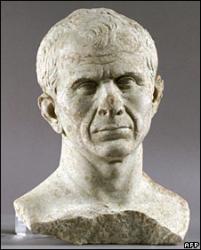 Jul 25 2008, 11:43 AM Jul 25 2008, 11:43 AM
Post
#1
|
|
 Spends WAY too much time at CBTL       Group: Admin Posts: 16,425 Joined: 8-December 06 From: Michigan City, IN Member No.: 2 |
http://www.thepaper24-7.com/main.asp?Secti...ArticleID=16772
QUOTE Just who was Isaac Elston? By The Montgomery County Historical Society For The Paper Isaac Elston is a name familiar to many in Crawfordsville. His name is also familiar to some residents of Michigan City, Lafayette and Kankakee, Ill. But, who was this man and how is he connected with these cities? Isaac Compton Elston was born in 1791 in New Jersey. By 1820, the U.S. Census listed him as living in Vincennes. He then moved to Terre Haute, before settling in Crawfordsville in 1824. Elston was a merchant, but his fortune really began in land speculation. In 1826, Samuel Sargent, who owned the future site of Lafayette, engaged Elston, John Wilson, and Jonathan Powers to help promote the town on the Wabash. Settlement soon boomed, and Elston realized a tidy profit. In 1832, Elston purchased a large tract of land on Lake Michigan and platted Michigan City. He rapidly sold the town plots and soon reaped $50,000 in profit, which was an incredible amount at that time. Years later, Elston managed to acquire 3,500 acres in Illinois from Chief Bourbonnais. From this land, he platted the future city of Kankakee, and made $75,000 on the transaction. Elston had done incredibly well in land speculations, but with the region pretty well settled by the 1850s he turned his attention to banking. He established the Elston Bank in the early 1850s. By 1865, the Elston Bank had more than $26,000 in capital and more than $58,000 available in deposits. The 1860 Census, recorded that Elston owned more than $200,000 in real estate, and had more than $70,000 in personal property. In comparison, the same page of the census listed a teamster with $400 in real estate and $500 in personal property, a lawyer had $35,000 in real estate and $4,000 in personal property, and a farmer had $4,000 in real estate and $500 in personal property. Isaac Elston died in 1867, but his fortune continued to be administered in the community through his children, which included Mrs. Henry S. Lane and Mrs. Lew Wallace. His son, Isaac Elston, Jr., known as Col. Elston, continued managing the Elston Bank until his death in 1926, at which point his son, Isaac C. Elston III, continued the family enterprise for a number of years more. |
  |
Replies
 Jul 25 2008, 02:16 PM Jul 25 2008, 02:16 PM
Post
#2
|
|
 Spends WAY too much time at CBTL       Group: Members Posts: 3,237 Joined: 8-December 06 From: MC Member No.: 3 |
I never heard of Elston Grove in Michigan City until the latter days of the Brillson epoch. Was this name of recent coinage or was it actually used by anyone before then?
 The difference between genius and stupidity is that there are limits to genius. Albert Einstein
|
 Jul 26 2008, 08:57 AM Jul 26 2008, 08:57 AM
Post
#3
|
|
|
Advanced Member     Group: Members Posts: 188 Joined: 10-April 08 Member No.: 783 |
Found the term "Elston Grove" mentioned here: http://mcmainstreet.com/id24.html
Was in reference to the oldest home, the Feallock House (built in 1866), in the Elston Grove Historic District. Said home was converted to the "The Historic 1866 Feallock House Bed and Breakfast" Perhaps the Elston Grove District was founded that long ago, as it more or less fits Isaac C. Elstons' timeframe of land purchases, albeit a couple of dozen years later. To quote from an article: The 19th century town of Michigan City emerged as a plan before it ever became a settlement. The plan arose from the ambition to create a harbor on Lake Michigan, and a road to transport supplies to homesteaders in Indianapolis and central Indiana. In 1830, just 14 years after Indiana became a state, the land for Michigan City was purchased, sight unseen, by Isaac C. Elston, a real estate speculator who had made a small fortune in Crawfordsville. He paid about $200 total for 160 acres of land including the future harbor at the mouth of Trail Creek. The town was named after the road leading up to Lake Michigan." Whether Elston Grove be that old or not, it is indeed an interesting piece of Michigan City History that (IMHOP) is not well known. |
Posts in this topic
 southsider2k7 Who was Isaac C Elston Jul 25 2008, 11:43 AM
southsider2k7 Who was Isaac C Elston Jul 25 2008, 11:43 AM
 Marram
http://www.thepaper24-7.com/main.asp?Secti...Arti... Jul 25 2008, 01:59 PM
Marram
http://www.thepaper24-7.com/main.asp?Secti...Arti... Jul 25 2008, 01:59 PM

 Marram Actually, the other daughter married pretty well t... Jul 25 2008, 02:10 PM
Marram Actually, the other daughter married pretty well t... Jul 25 2008, 02:10 PM  |
1 User(s) are reading this topic (1 Guests and 0 Anonymous Users)
0 Members:
| Lo-Fi Version | Time is now: 26th April 2024 - 05:45 AM |
Skin Designed By: neo at www.neonetweb.com
Invision Power Board
v2.1.7 © 2024 IPS, Inc.








